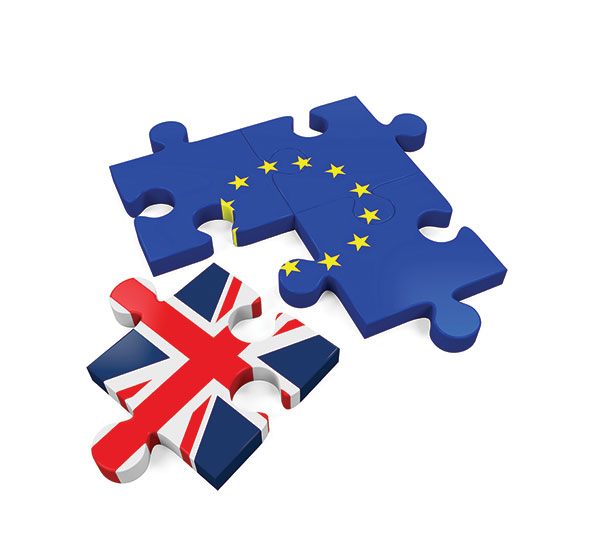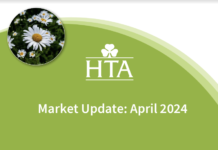Cian Hassett, Global Graduate, Bord Bia – The Irish Food Board
IGD Brexit Update Webinar
IGD released an informative Brexit update video webinar last week, hosted by James Walton and Michael Freedman, summarising the developments in the UK from a political and economic point of view. This update also covered areas of the proposed EU/UK trade deal conflict given the objectives coming from the UK. They reiterated that the transition period is vital to ease the immediate impact of Brexit, but also reminded people that a No-Deal Brexit is still technically possible, adding that even if a deal is done that huge change is to be expected. Some of the main points from the webinar are highlighted below.
Political & Diplomatic
- The EU Parliament is meeting on the 28th and 29th of January to vote on the Withdrawal Agreement. It should be passed by the UK and EU by the 31st of January.
- The EU cannot start negotiating until they receive a negotiating mandate by the 25th of February. It may be nine months rather than eleven months to complete a trade deal
- Ursula Von der Leyon stated during the week that a bare-bones trade deal could be agreed by the end of 2020 and then more concrete negotiations after this point. IGD are concerned about a bare-bones deal as agri-food may not be a top priority and a full FTA can take years to complete.
- Johnson has highlighted on several occasions that he is not willing to extend the transition period so IGD warns that a no-deal is still a high possibility.
- Johnson’s Government planned EU/ UK trade deal includes: no membership of single market and customs union; no common fishery; no jurisdiction for EU courts; and no free movement of people. This idea breaks a lot of EU red lines so IGD believe that both sides will settle somewhere in the middle.
- A Free Trade Agreement will not mean business as usual and businesses must bare this in mind.
Government & Administration
- Businesses are urged to pay close attention to the UK budget on the 11th March 2020 as spending increases have been promised.
- Theresa Villiers delivered a speech on the evolvement of agriculture in England and promised that the government would offer subsidies for more sustainable farming.
- Henry Dimbleby’s National Food Strategy final report will be released at the end of the year.
- As the UK is reliant on a migrant workforce, businesses will have to pay close attention to new immigration schemes that will be introduced in order to understand how they will be affected.
Citizens & Shoppers
- IGD’s ShopperVista data, based on a thousand UK shopper interviews in December, indicates that shoppers are worried most about high food value standards declining after Brexit
- Shoppers are also considering buying more British-sourced produce because of Brexit
UK Retail Market Performance
- Retail demand in the UK remains weak. Discount grocers accounted for the bulk of grocery sales in Q4 2019. UK grocery and retail not in a strong position as Brexit is looming
FDF UK Food & Drink Sector Report
- Further to the webinar from IGD, the Food and Drink Federation (FDF) recently released their UK Food & Drink Sector Report which reinforced the impact of the workforce pressures expected in line with Brexit, as well as highlighting some points on the overall food and drink industry. The report looks in particular at UK exports and the developing markets of China, India, Japan, UAE and USA. Santander’s export team provides an analysis of the potential and challenges around each territory together with key information for any company considering trading with these harder to reach markets. Sustainable packaging and diet and health are also covered in the report as areas where the industry has committed to making positive changes. Some of the stats from the FDF report are outlined below:
Exports
- In 2018, F&D export figures worth over £23 billion – Top three markets of Ireland, France & USA
- H1 2019 exports of F&D increased by 5.1% YoY to £11.3bn. Largely driven by value growth in exports to non-EU countries, 4 times more than exports to the EU.
- Dependency on imports increase by 0.8% since H1 2018 due to a decline in the trade balance.
- YoY growth of exports exceeded 11% in Q1 of 2019, while Q2 reported a decline of -0.6%. FDF members suggested this was because Q1 figures were inflated by stockpiling. They further predicted that exports in the UK economy would decline over the remainder of 2019
- Exports to Ireland fell in value compared to H1 2018, key drivers to this were weaker exports of cereals & flours and meat-based products. Grew exports to the next top 5 markets.
All of UK’s highest value export products grew in H1 2019
Economic
- F&D manufacturing needs 140,000 new workers by 2024, but 42% of businesses expect a supply of permanent workers over 2019. Businesses also expected an 87% decrease in temporary labour.
- Over 25% of the manufacturing workforce is from the EU, with EU workers making up 12% of the entire workforce of the UK food chain.
- A key priority of FDF is to try work with the UK government to secure a new immigration system to access the labour needed.
Other News
Boris Johnson’s trade plan looks to put the EU on the back foot. Boris Johnson’s plan to run parallel trade talks with Brussels and Washington after Brexit received encouraging noises from Donald Trump on Tuesday when the US president told an audience in Davos he was looking forward to negotiating a new trade deal with the United Kingdom. His commitments came the day after Mr. Johnson set out his twin vision for trade talks, with the government preparing to publish documents on its negotiating mandate for future trade deals not only with the EU and US, but other countries like Australia and New Zealand. With members of the EU unable to confirm their own negotiating mandate until March, the move seems like an attempt by Boris Johnson to put Brussels on the back foot for negotiating. The UK believes the twin-track approach will give it greater leverage as it tries to play the two sides off against each other.
Lines drawn on post-Brexit trade talks by Sajid Javid. The UK Chancellor of the Exchequer has laid down one of the battle lines of post-Brexit trade talks with the EU, warning that Britain would never be a supplicant that accepted EU rules. Business executives and EU officials have been left feeling unsettled by Javid’s insistence last week that there would not be alignment with EU regulations by the EU, with the UK stance having potential consequences for Britain’s future market access. Everyone is unsure of the precise implications of Mr. Javid’s pledge or whether it is part of the UK’s negotiating tactics ahead of the beginning of their trade talks on January 31st. These will vary depending on how far, and in what way, the UK plans to assert its independence.
UK faces fines if it breaks post-Brexit EU trade rules. Under plans presented by the EU Commission on Monday, the UK could potentially be fined or lose preferential access to the EU market if it violates the terms of a future relationship deal. Brussels has expressed that trade and other future co-operation with the UK to be governed by one strong set of enforcement rules, according to a presentation by the EU shared with diplomats on Monday. The measure looks to ensure that each side can act to protect itself in the event that the other fails to honour its obligations. France and other European capitals are pushing for the UK to stay in sync with EU rules in areas such as environmental and labour policies, state aid and tax, arguing that future alignment is essential to protect European companies from unfair competition.
Key Dates
29th-30th January 2020: European Parliament votes to ratify the withdrawal deal.
31st January 2020: UK Leaves EU and transition period begins
26th February 2020: Council of EU approves negotiation mandate
11th March 2020: UK Budget released
18th-19th June 2020: UK/EU summit to discuss progress
30th June 2020: Deadline for the UK and EU to extend the transition period
31st December 2020: If a trade deal has been agreed by this date, a new relationship with the EU starts. Otherwise, the UK exits the transition period without a trade deal.
31st December 2022: Last date to which transition period can be extended










